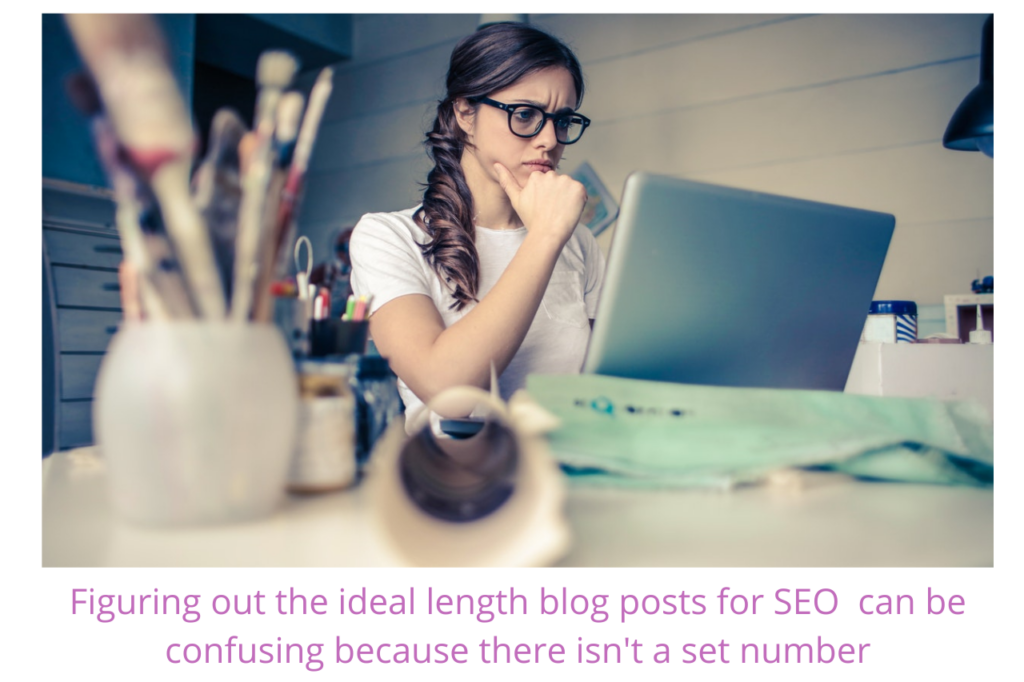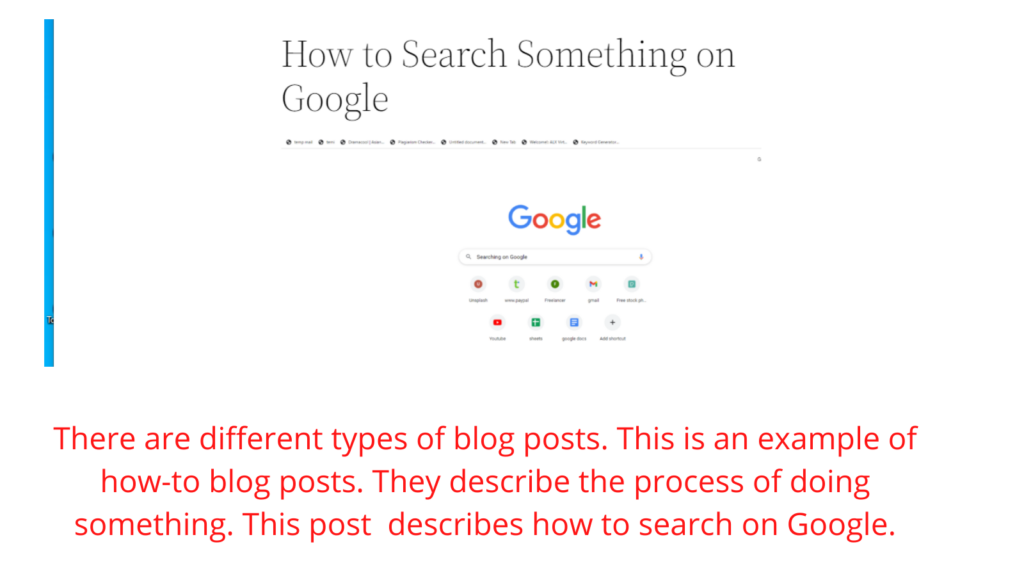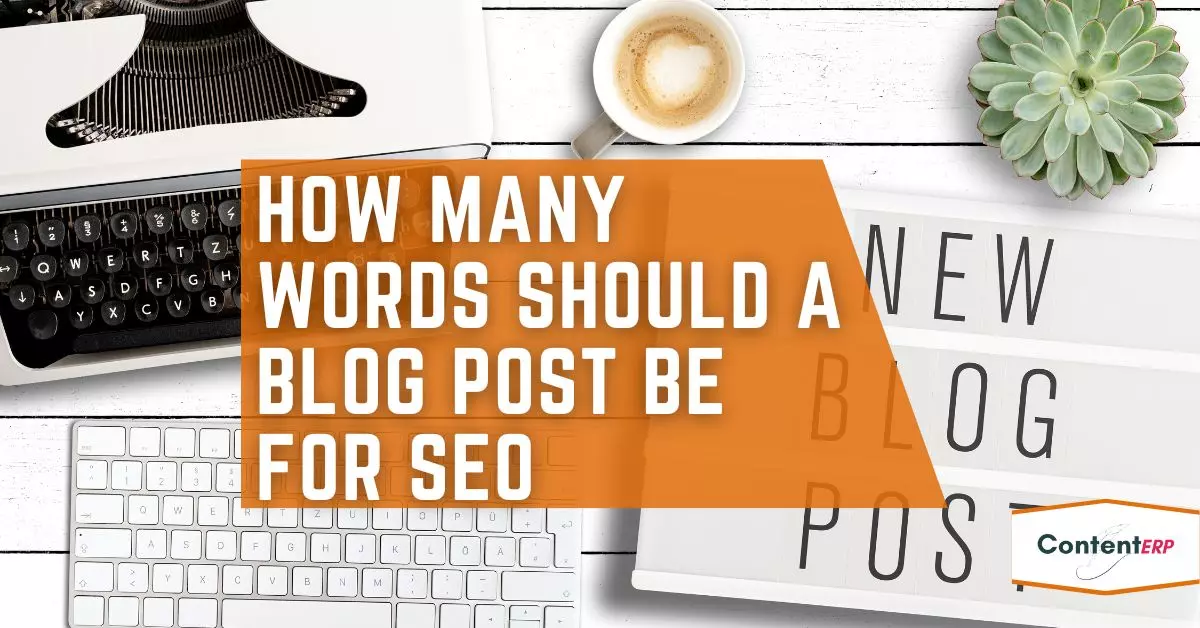How many words should a blog post be for SEO
If you’re a blogger, you’ve asked yourself how many words an SEO-friendly blog post should contain. Does the overall length of your blog matter for SEO? How would that impact your writing? The ideal blog length has been a topic of discussion for years. The short answer provided by Google for this brain-itching question is simple “it depends.”
What Google means is you shouldn’t restrict yourself to a character count that’s either too low or too high. However, Google has clarified that word length is not a ranking factor. However, any seasoned blogger will tell you that there is an ideal range for how long your blog posts should be. The main variables to consider when deciding how long your posts should be are:
- Your audience
- the structure of the post
- Subject matter.
- Searcher intent.
Subject matter
The ideal length of a blog post on a recipe for a food blog will be different from the ideal length of a post on the best foods that promote good eyesight. The subject matter demands are different for both these articles, so wanting to write them with the same length in mind might be a tall order.
Audience and intent

Another factor to consider is your audience and their search intent. Likely, a person looking for the perfect recipe to make dumplings does not want to read lines of tiresome text to get to the point of making them. On the hand, a person looking for foods that promote good eyesight might be looking for a lot of information on the foods chosen and the data backing it up.
You also need to consider that person’s level of intent; are they looking for basic discovery information, or are they trying to buy something right now in as few clicks as possible? Your content will reflect that person and their different stages of user intent.
What do statistics say about word length in SEO?
The ideal blog post length for SEO should be 2,100-2,400 words. According to Hubspot, the average length of their 50 most-read blog posts in 2019 yielded an average word count of 2300. Even though global attention spans are narrowing, long-form content still performs exceptionally well in search.
But before you go writing your 2,300-word blog post, keep in mind that not all blog posts need to be this long. Data suggests that 16 of 50 read posts fall under 1,500 words, so there are still plenty of opportunities to get your posts ranked even with a lower word count.

Advantages of writing SEO posts with longer text
Room for more
For best practices, writing posts with a word length of 1000 words and above is better for ranking. When your text is longer, Google has more clues to determine what it is about. The longer your (optimized) text, the more often your focus keyphrase appears. This is no excuse for keyphrase stuffing, though! If you optimize your copy naturally, your focus keyphrase will pop up here and there throughout your text. Longer posts provide versatility and give more room to fit more headings, links, and images.
Help in ranking for long-tail variants
A longer text might also help you rank for multiple long-tail variants of the keyphrase you’ve optimized your text. That’s because, in a lengthy text, you probably address various topics. Your article, or your other posts that take a deep dive into the subtopic, will have a chance to turn up in search results for the long-tail variants of your keyphrase. If you do some intelligent internal linking, you can boost traffic to the extensive post you’ve written. This will help you drive more organic traffic to your site. Check out our article for more information on SEO and ranking.
Avoid thin content
Although word length is not a ranking factor, if a page consists of few words, Google is more likely to think of it as thin content. All search engines want to provide answers to people’s queries. Thin content is less likely to offer a complete explanation and satisfy the public. Consequently, it will probably not rank very high.
The same goes for product pages and product descriptions in your e-Commerce online store. While these don’t have to be as long as a blog post, making them long is a good idea.

The ideal post length for lead generation
There’s often a disconnect between the posts that generate traffic and those that generate leads or new contacts for your business. Posts that get more traffic do so because they’re searched for by a wider audience, which sometimes means the topic you’ve written about is more generic and doesn’t align closely with your business. According to research, the ideal length of a blog post intended to generate leads is 2,500 words. This number was approximately 500 words longer than the average length of the most-read blog posts.
Writing longer content works in your favor for a blog post intended for lead generation. Longer content reinforces your knowledge and authority on a subject — particularly if it’s a keyword or a topic for a particular audience. When your coverage is more in-depth for these ideas, you increase your chances of ranking better — and while your audience might be smaller, your chances of converting readers into leads are far more significant.
Focus on quality, not quantity
Too many people emphasize the average word length for articles and the misunderstood importance of having more than a certain number of words on each page to rank well.
Give users what they want regardless of how many words it takes to say it. If it feels like you’re writing uninteresting copy to inflate the word count, know that your readers can feel it as well.
Google can recognize content that contributes little to no added value to the web. That means longer posts can hold your site back in search if they don’t say anything useful.
Ideal blog post lengths for different blog types

there are different types and formats of blog posts, so the ideal word length for blog posts can be determined by the kind of blog post you’re creating content for.
How-to blog posts
How-to blog posts should be between 1,000 and 2,000 words. Because how-to posts describe how to do something, the ideal length of the blog post depends on how difficult it is to do what you’re explaining how to do. For example, this blog post on how to search for something on google has 1200 words.
Listicles
Listicles, or list blog posts, should be 2,300-2,600 words. List blog posts are probably the most approachable format for new bloggers. Anyone can make a blog post just by listing off and explaining a few examples, tools, resources, or ideas for a given topic. Regarding the length of these blog posts, the rule of thumb is the more examples, the better.
Pillar blog posts
Pillar pages should be around 4,000 words since they are supposed to cover significantly more content than an average blog post.
A pillar page is your attempt at being the all-encompassing guide to any subject available on the Internet as a blog post. These posts serve as a “pillar” to a cluster of blog posts related to the topic explained in the pillar. You can learn more about pillar pages by watching the video below.
What-is blog posts
“What is” posts, or blog posts that answer a question (such as the one you’re reading right now), should be between 1,300 and 1,700 words (which this one is!).
These posts are the poster child for making blog posts “as long as they need to be.” When readers search for what, who, or when something is, they typically want a quick answer or explanation. There’s no need to bog down readers with too much information.
Minimum blog post length
There is no official minimum for blog post length, though Yoast recommends at least 300 words. Data suggests that writing longer posts should be the rule rather than the exception for your blog. This practice will help your website build authority in the eyes of search engines, which can help shorter blog posts rank better.
Summary
Google’s algorithm prefers more content word count compared to shorter content posts. It is not about quantity but quality. If you generate enough content for excellence, you’ll be able to rank in the top SERP results.
SEO is getting more complex and more innovative. A strategy is necessary to achieve long-term success. Whatever your approach, the message is loud and clear: your articles require a checklist of SEO items for them to rank well.
Word count appropriate to the goal and audience might help you get there faster, but it won’t guarantee results on its own.
Make sure to produce the best possible quality content optimized for SEO, and do it consistently.

